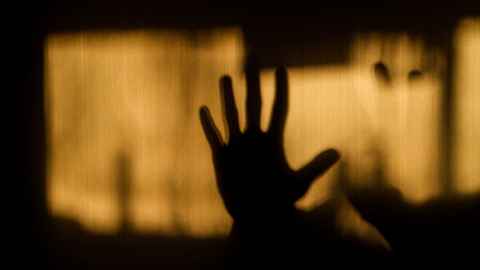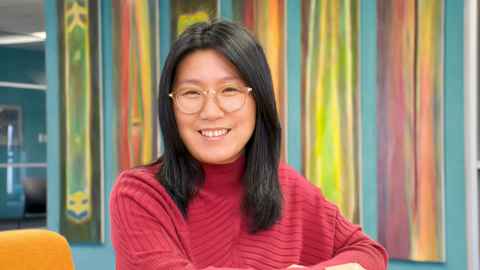Support for young Asian sexual violence survivors
11 May 2023
A teaching toolkit to better support Asian survivors of sexual violence in our schools and tertiary institutions is the aim of a new study at the University of Auckland.

Targeted resources to support Asian survivors of sexual violence in Aotearoa’s schools and tertiary providers is an unmet need, believes Dr Ying Wang, a postdoctoral research fellow at the University of Auckland.
Dr Wang will be undertaking a two-year study to produce a range of open educational resources for schools and the Asian community to better deal with these difficult and sensitive topics.
“I know this community doesn’t necessarily read reports or go to academic conferences, so I want my research to be practical and useful; I want to give back to them with this work.”
Dr Wang worked as an arts psychotherapist prior to her academic focus, and believes she is the first Chinese person registered to do so in New Zealand.
“As part of my practice I worked with ACC clients recovering from things like sexual abuse and trauma, and I heard a lot of inside stories. Sometimes I was the only Mandarin speaker trained in this field they could call on to work with these people.”
And she notes that it’s also not unusual for Asian students who might need support in this area to already be struggling with a new culture and language.
“So they can end up suffering a kind of secondary trauma; they’re so vulnerable, it’s very hard for them.”
A key challenge is defining what sexual violence is in the first place, she says.
“It can be defined quite differently for those in the Asian community. They probably don’t think, for example, that sexual violence can exist in marriage or as part of online interactions or during dates, so lots of education needs to be done.”

And the low rates of reporting, which is an issue across the board, is a particular issue for this community.
“It’s still such a male-dominated culture that many people think these behaviours are normal, so they won’t report them. There is also the cultural impact for the family of going public; there’s a lot of shame and stigma attached.”
Wang knows first-hand the pressure of social expectation on many young Asians.
“For ages I followed my parents’ dreams for me and not my own. And I’ve used art to explore a lot about my own identity, so I’ve learned about its power, which is why I’m so passionate about it.”
She says the idea to do this study came when she started work as an emerging researcher at the Centre for Arts and Social Transformation in the University’s Faculty of Education and Social Work.
“I had a kind of ‘dream list’ for research and because the director, Professor Peter O’Connor, understood the power of art for wellbeing and social transformation, he said, ‘Sure, let’s see if we can get some funding’.”
Then came a grant from the Lottery Commission Health Research Group for Wang to initially conduct one-on-one anonymous interviews with small numbers of sexual violence survivors, some parents and caregivers of survivors, and some interested educators across high schools and tertiary providers.
The age range for survivor interviewees will be 16 to 24, as this has been identified as the group at highest risk and will involve students – including international students – from high schools, private language schools and universities.
Her interview sessions won’t just involve the conventional ‘talking and listening’, but instead include anything from interviewees writing poems and painting pictures to movement and storytelling to explore the sensitive topic in a safe, non-threatening and creative way.
“When people experience trauma, they normally store these troubling emotions in their bodies, and sometimes it’s hard to explore them directly, it’s risky and vulnerable.
“So in these interviews, it’s my job to provide a safe and totally confidential space [away from home and school/university] for people to process and explore these emotions however they choose, and especially if English is not their first language.
“Things like poetry, art, narrative, movement and dance; anything that will create a mirror to reflect those emotions.”
When people experience trauma, they normally store these troubling emotions in their bodies, and sometimes it’s hard to explore them directly, it’s risky and vulnerable.
Wang describes this process as a triangle and will be working within strict ethics and safety protocols.
“There will be me, the interviewee and the process itself, which is the third participant. I won’t be acting in any sort of therapy capacity, although of course I hope the process will be helpful for them, and I’ll be focused on their lived experience.”
Wang says the study won’t be restricted in terms of which Asian ethnicities or genders she engages with.
“I might be talking to young men as well as women and also members of the LGBTQ+ community; no one is excluded.”
And while she’s not yet sure what the resources will finally look like, she can guarantee they will be arts-based, to reflect the point of difference of the whole process.
“They could be online and in print, they could be in the form of picture books, drama or storytelling exercises, who knows? I believe in the power of art to deliver this information to the community.
“I’ve seen the transformation that can happen when people get involved with this type of therapy and it’s beautiful work; it always surprises me every time, what the arts can do.”
She wants to know what the barriers are to getting help, for everyone concerned (survivors, educators, families), as she believes the New Zealand education system doesn’t have enough sex and relationship education tailored to this community.
“I hope this research is the beginning of something rather than the end; the beginning of the realisation that there needs to be training to support teachers and educators in this field, that they need to have cultural competence. This is not just a New Zealand problem, it’s a worldwide problem."
Media contact
Julianne Evans | Media adviser
M: 027 562 5868
E: julianne.evans@auckland.ac.nz